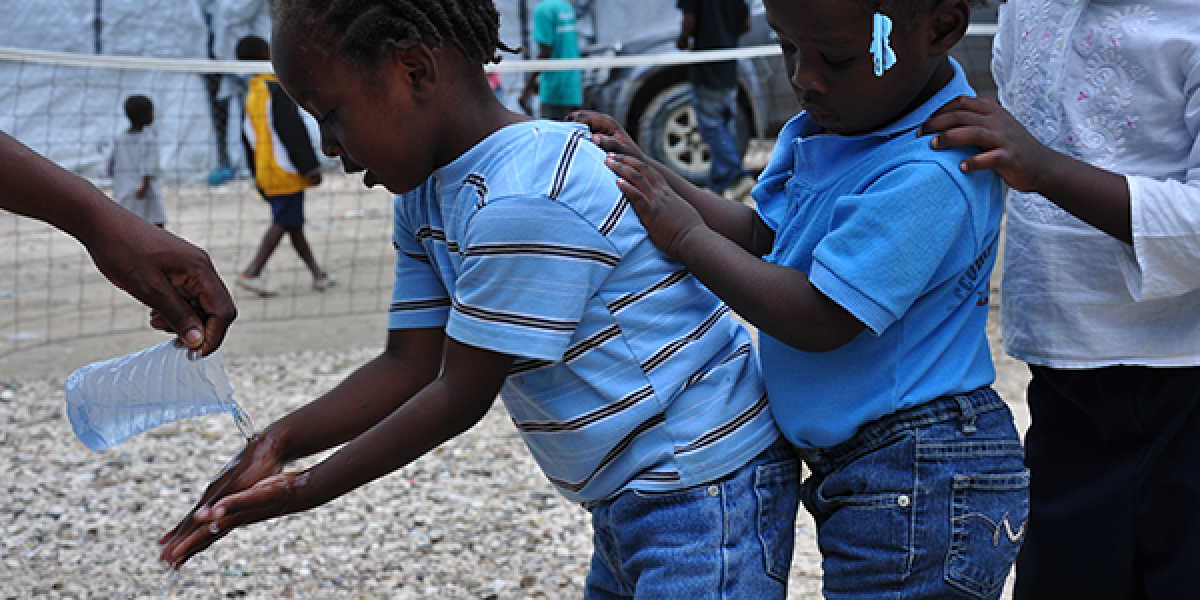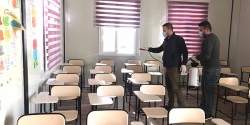COVID-19 And Refugees: Your Questions Answered
20 March 2020

As the world faces a global pandemic, there are a lot of questions about who, what, and where the impacts will be felt around the world. For those we accompany, refugees and displaced people, these questions can be particularly concerning. So, we’re answering some of the questions we’ve heard from you, our supporters and friends.
How is COVID-19 impacting refugees?
Refugees and displaced people are particularly vulnerable to the spread of COVID-19. They often live in overcrowded camps or urban areas with limited access to health care. Many living conditions, like camps in Kenya, Syria, or Lebanon are so crowded that “social distancing” is not possible.
Some measures have been taken to protect refugees and limit exposure to the disease. For example, in Bangladesh, the camps have been closed to any outside visitors.
According to UNHCR, The UN Refugee Agency, as of Tuesday, March 17, there are only 10 cases of refugees who had contracted the virus. But, with lack of testing and health care infrastructure in many of the places where refugees and displaced people are, it is difficult to know the accuracy of this number. In some places, like Afghanistan, the spread of COVID-19 has begun and we are anticipating a serious impact on displaced people.
Refugees are facing other impacts. Global resettlement has been halted, borders have closed, and groups who provide aid and assistance, including Jesuit Refugee Service, have had to temporarily pause programming in an effort to protect both staff and refugees.
How is JRS responding?
At this time, we are closing unessential programs where people would gather, including schools in many countries where they have been closed, and are actively providing education about social distancing and hygiene methods to slow the virus. In places where the spread of COVID-19 has begun, we temporarily shut down some our programming, having staff work remotely where they can.
We are also responding to immediate needs presented by the global pandemic, including:
- Helping hospitals transport supplies to those in greatest need.
- Continuing to distribute medicine, cash support, and basic needs assistance and providing other essential services while incorporating education and social distancing into these programs.
- Continuing help for those in greatest need, especially vulnerable women who need protecting and people with special needs.
- As much as possible, distributing hygiene supplies to both our staff on the front lines and the refugees we serve.
- Using technology to provide legal help where offices are shut down.
There is still a lot unknown about the future needs for refugees, but we do know, given the extreme vulnerability, they will exist.

What is JRS doing to protect staff?
JRS global security staff is providing regular information to our staff around the world about the risks of the outbreak as well as instructions for hygiene and group practices to prevent the spread of COVID-19.
Many of our offices around the world including those in the U.S., Europe, Middle East, and parts of Latin America are working remotely.
Here in the U.S. our chaplains are essential personnel and continue to serve people being detained by the US government in five detention centers and we are ensuring that they have access to n95 masks and appropriate hygiene materials.
What will the impacts on refugee policy be?
Policy is already starting to have an impact on refugees: People trying to flee from Venezuela are not allowed to cross the border into Colombia; the United States is considering closing all access at its southern border to asylum seekers; and more and more borders and travel are restricted.
UNHCR has called on all governments to include refugees in their response to COVID-19 and has asked that policymakers trying limit the movement of people and spread of disease not deny people who are in grave danger the right to seek safety and asylum.
I’m at home social distancing or quarantined, what can I do to help?
Your support and expression of solidarity is as important now as ever. There are many ways you can help:
- Pray: Continue along our 40 days of prayer for the 40 days of Lent, where we have daily intentions for refugees and displaced people. We’ve updated the intentions to include the current global reality.
- Act: Our annual Advocacy Day is going virtual! And, it’s not too late to sign up. Click here to learn more and RSVP.
- Give: During this unprecedented time, JRS continues to accompany, serve, and advocate for refugees and displaced people. If you can, please consider a gift. Your gift today can help those most vulnerable to the spread of COVID-19.
- Read: It remains critical to be in solidarity with our displaced brothers and sisters – learning and sharing their stories. Check out Dying to Live: Stories from Refugees on the Road to Freedom, and use our book discussion guide to have a virtual book club with your friends, school, or community.



